
Kód: 04524134
Individual and Conflict in Greek Ethics
Autor Nicholas White
Nicholas White opposes the long-standard view that ancient Greek ethics is fundamentally different from modern ethical views, especially those prevalent since Kant. Since the eighteenth century, and indeed since before Hegel, mora ... celý popis
- Jazyk:
 Angličtina
Angličtina - Vazba: Pevná
- Počet stran: 388
Nakladatelství: Oxford University Press, 2002
- Více informací o knize

Mohlo by se vám také líbit
-

Sisters Of Sinai
283 Kč -

46 DIVISION 138 Infantry Brigade Lincolnshire Regiment 4th Battalion.
1097 Kč -

Die Sache mit dem Gruselwusel, 1 Audio-CD
244 Kč -

L'enigme Des Blancs-Manteaux
299 Kč -

Koordination raumwirksamer Politik
437 Kč -

Desde La Barranca. Malcolm Lowry y Mexico
358 Kč -

Geldentschaedigung Und Schmerzensgeld
1982 Kč
Dárkový poukaz: Radost zaručena
- Darujte poukaz v libovolné hodnotě a my se postaráme o zbytek.
- Poukaz se vztahuje na celou naši nabídku.
- Elektronický poukaz vytisknete z e-mailu a můžete ihned darovat.
- Platnost poukazu je 12 měsíců od data vystavení.
Více informací o knize Individual and Conflict in Greek Ethics
Nákupem získáte 323 bodů
 Anotace knihy
Anotace knihy
Nicholas White opposes the long-standard view that ancient Greek ethics is fundamentally different from modern ethical views, especially those prevalent since Kant. Since the eighteenth century, and indeed since before Hegel, moral philosophers wishing to oppose the dualism of rationality-cum-morality vs. inclination, especially as it is manifested in Kant, have looked to Greek thought for an alternative conception of ethical norms and the good life. As a result, Greek ethics, particularly in the so-called Classical period of the fourth century BCE, has for more than two centuries been standardly thought to be fundamentally eudaimonist, and to have the character of what is nowadays normally called the ethics of virtue. White argues that although this picture of Greek ethics is not without an element of truth, it nevertheless seriously distorts the facts. In the first place, Greek thought is far more variegated than the picture suggests. Secondly, it contains many elements - even in the Classical thinkers Plato and Aristotle - that are not eudaimonist and also not suitable for an ethics of virtue. Greek thinkers were not as a group convinced of the possibility of a harmony of one's happiness with full regard for the happiness of others and with conformity to ethical norms. On the contrary, Greek thinkers were well aware of,and took seriously, the idea that ethical norms can possess a force that does not derive from conduciveness to one's own happiness. Indeed, even Plato and Aristotle took it that under certain circumstances there can even be a clash between ethical standards and one's own well-being. The project of completely eliminating the possibility of such a clash came to full development not in the Classical period but rather in the ethics of the Stoics in the third century. Individual and Conflict in Greek Ethics argues that throughout Greek thought the concept of ethics as a source of obligations and imperatives can, in unfavorable circumstances, run counter to one's own happiness. In this sense Greek ethics has a shape similar to that of modern Kantian and post-Kantian thinking, and should not be seen as opposed to it.
 Parametry knihy
Parametry knihy
Zařazení knihy Knihy v angličtině Humanities Philosophy History of Western philosophy
3225 Kč
- Plný název: Individual and Conflict in Greek Ethics
- Autor: Nicholas White
- Jazyk:
 Angličtina
Angličtina - Vazba: Pevná
- Počet stran: 388
- EAN: 9780198250593
- ISBN: 0198250592
- ID: 04524134
- Nakladatelství: Oxford University Press
- Hmotnost: 689 g
- Rozměry: 242 × 163 × 27 mm
- Datum vydání: 13. June 2002
Oblíbené z jiného soudku
-

Meditations
239 Kč -

The Myth of Sisyphus
169 Kč -

Aphorisms on Love and Hate
84 Kč -

Leviathan
236 Kč -

Beyond Good and Evil
241 Kč -

Myth of Sisyphus
258 Kč -

Existentialism Is a Humanism
202 Kč -

Simulacra and Simulation
416 Kč -

At The Existentialist Cafe
277 Kč -

Ride the Tiger
482 Kč -
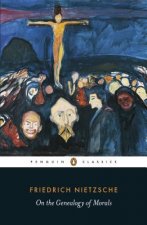
On the Genealogy of Morals
269 Kč -

Nausea
258 Kč -

Gay Science
316 Kč -

Nicomachean Ethics
136 Kč -

Anti-Oedipus
595 Kč -

Plato: Complete Works
1903 Kč -

The Farther Reaches of Human Nature
452 Kč -

Beyond Good & Evil
322 Kč -

Thus Spoke Zarathustra
634 Kč -
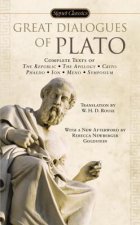
Great Dialogues Of Plato
146 Kč -

Nietzsche: Human, All Too Human
1020 Kč -
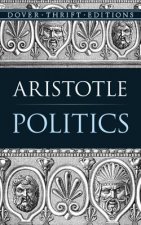
Politics
273 Kč -

Selected Philosophical Writings
283 Kč -

Thus Spoke Zarathustra
486 Kč -

Philosophy and the Mirror of Nature
486 Kč -

Will to Power
389 Kč -

Being and Time
516 Kč -
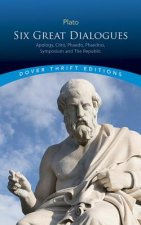
Six Great Dialogues
169 Kč -

From Communism to Capitalism
1752 Kč -

Nietzsche: The Gay Science
589 Kč -

Meditations
502 Kč -

Why I Am so Clever
71 Kč -

Letters from a Stoic
258 Kč -

Meditations
386 Kč -

Either/Or
334 Kč -

The Symposium
233 Kč -

Discourses and Selected Writings
288 Kč -

Think
283 Kč -

The Trouble With Being Born
298 Kč -

Spell of the Sensuous
343 Kč -

Thus Spoke Zarathustra
269 Kč -

Twilight of the Idols with The Antichrist and Ecce Homo
136 Kč -

Discourses, Fragments, Handbook
283 Kč -

Nicomachean Ethics
288 Kč -

Critique of Pure Reason
444 Kč -

Socrates' Defence
84 Kč -

Ecce Homo
233 Kč -

Human, All Too Human & Beyond Good and Evil
131 Kč -
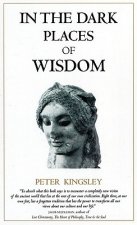
In the Dark Places of Wisdom
327 Kč
Osobní odběr Praha, Brno a 12903 dalších
Copyright ©2008-24 nejlevnejsi-knihy.cz Všechna práva vyhrazenaSoukromíCookies



 Vrácení do měsíce
Vrácení do měsíce 571 999 099 (8-15.30h)
571 999 099 (8-15.30h)